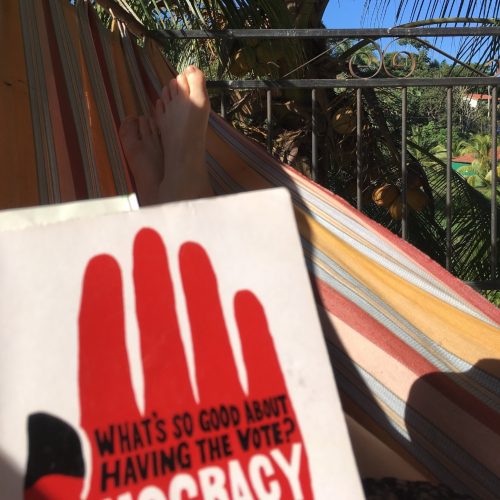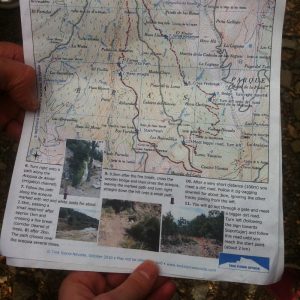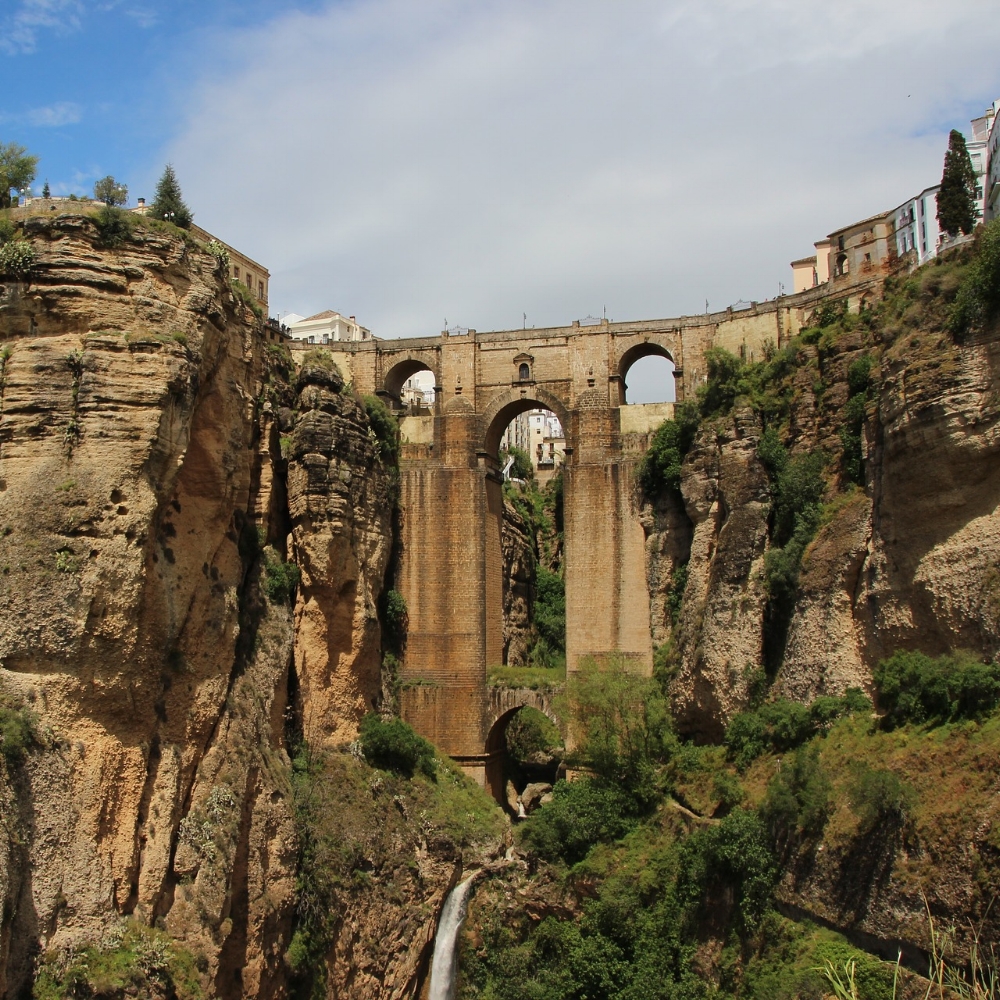
What Does “Vale” Actually Mean?!
Dear Katherine,
When you first arrive in Spain, you will begin to hear people say certain phrases on a regular basis. We have already talked about no pasa nada and explained what a guiri is, but another important word in Spanish vocabulary is vale (remember that the v is pronounced as a b in Spain, so you may also see it written as ‘bale’in text messages or other information communications). Within the first week or so you are in Spain you will hear this word more than you can count, but do you know what it means?
 Vale from the verb valer
Vale from the verb valer
The verb valer means to value something and the value of something is its valor. Spanish people do tend to use the verb valer for various expression. For example, valer is used in the saying “vale la pena” (to be worth it). But does the vale that Spaniards use alone, as many times as possible in a sentence, have this same meaning? Maybe the roots are the same, but in today’s day and age, I personally don’t think that when vale is used in frequent conversations it still carries this meaning.
Vale because something is válido
Another word that vale can be tied to is válido which can be translated to saying something is valid (which in turn is connected to valer/valor because it does represent the value of something as being true). This could also make sense as a possible explanation for the use of the word vale because a lot of times when it is used people are accepting what you are saying to them or agreeing to a plan. For example, if someone asks if I want to meet for coffee at 11, a perfectly reasonable answer could be vale, which I guess can be interpreted as “that plan seems valid to me.”
 Vale like okay
Vale like okay
Potential etymology aside, the Spanish use the word vale is most frequently used similar to how we use ‘okay’ to confirm something in English—although they also do use ‘ok’ and ‘okey’ (Spanish interpretation of okay)as a more direct ‘translation.’ That is to say, anywhere that you could easily reply okay, you can probably use the word vale. At the same time, like we noted with no pasa nada, saying vale doesn’t really have negative implications that okay might have, it is just an acceptable way of saying ‘yes’ or ‘I hear you’ or ‘sounds like a good plan.’
How many times a day do you hear vale? Do you use it when you speak as well?
Let us know!
Sincerely,
Spain





15 Comments
travisislas@hotmail.com
Also we use "vale" for the name "ticket", por example:
-Te regalo un vale para el cine.
-I gift you a ticket for the cinema.
// good article !
Sincerely, Spain
Thanks for your input Travis!
In Granada, we have never really heard the term "vale" to mean "ticket." Could we ask where you use this? In other places in Spain? In other countries?
We are glad you liked the article!
Dani and Claudia
awy84@yahoo.com
Yeah I have noticed that here in Barcelona Spanish people really over use the word ‘vale’ like it’s a new word they have just discovered, I will here it millions of times during the day, if I go outside now on the streets it will be literally seconds before I hear someone saying it
Sincerely, Spain
Thanks for sharing your comment Alex!! It is so funny how things like this are normal for Spaniards but jump out at us! We wonder if your example is a bit like hearing native English speakers use the word "like" as that word seems to come up quite often (and many times unnecessarily) when we talk.
afj21@yahoo.com
My wife and I were looking for apartments today and the realtor said, "Si, Vale" or just "Vale" or "Si" about 6,000 times. I found it funny how you said they try to use it as many times as possible in one sentence, it’s true. In the Rio de la Plata region, they use a similar word, "Dale", which is used with the same frequency as "Vale" and in the same exact context.
Sincerely, Spain
Thank you for sharing your experience with us! We have found that once we started speaking Spanish more often, we also include it in our conversations continuously (or even speaking English these days!). It is also interesting to hear that a similar idea/word is also used in Argentina!
Wishing you best of luck with the apartment search!
Dani and Claudia
adam@intelligenteating.org
once a day.
Oggy
At the cell phone store in zaragoza the tech said ‘vale’ after every operation and number. Dozens of vale. Another tech was helping someone else while also saying vale. For a moment The techs appeared to be communication saying vale…vale…vale…vale…vale..like 20 vale simultaneously back and forth across aisles.
I decided this was not a random phenomenon and it appears they are aware of it.
Spanish speakers in zaragoza all sound like Penelope Cruz to me so I forgive this quirky word.
Sincerely, Spain
Dear Oggy,
You will often find people including this word many times in their every day conversations. 😀 And depending on the tone and intonation, it might also mean different things. We hope you are enjoying your experiences and what you hear!
Sincerely,
Dani and Claudia
Erik
Thank you for this explanation. My wife and I found it curious upon visiting northern Spain, because it “vale” sounds and works exactly like a cognate in Farsi, which we have heard and used in Iran and Afghanistan.
Sincerely, Spain
Dear Erik,
Thank you for sharing your experience! It is fun to hear how different languages have similar words.
Sincerely,
Dani and Claudia
Christopher
In Argentina (as AFJ21 mentioned), they use “dale,” but it was for me a bit trickier than just meaning “ok.” I was dating an Argentinian woman (and even traveled to Buenas Aires with her), and once when I tried to use it just to say “ok,” she laughed and said that wasn’t the right usage. I never did figure out exactly why I was wrong, but my general impression was that it was used more to agree to actually doing something, rather than just simply saying “ok”.
Because she also used it like “vamos” – to say “let’s go” or “get moving” or “hurry up!” – She’d say “Dale! Dale!” in that way of meaning, “let’s get a move on!” So it seems more of an affirmative for when the yes means yes to actually doing something, rather than simply agreeing with a statement.
I guess it’s more along the lines of the way it’s described in this NPR article (https://www.npr.org/sections/codeswitch/2014/08/23/342530922/to-pitbull-fans-around-the-world-dale-is-a-way-of-life), about Pitbull’s use of it (and he’s Cuban-American):
——
Dale, like so many words and expressions in Spanish, has a fluid definition that varies among countries and cultures. Pronounced “Dah-lay,” it essentially means “give it” or “go ahead” in English. It can be a nod of encouragement or a forceful demand. It’s also flirtatious, a warm coo of a sexual invitation.
—–
Sincerely, Spain
Thanks for sharing your experience and insights, Christopher. We’re sure a number of people will happen across this article while looking for ‘dale’ and find your description helpful. While we haven’t been to Argentina to encounter exactly how ‘dale’ is used, it sounds like you certainly picked it up in context. It sure is fascinating how Spanish varies from country to country!
Andrew
Back in high school our spanish teacher would write vale on our assignments if it was just for credit.
Nowadays for my job I occassionally have to call customers for additional information about an order and I’ve found myself using vale a lot when getting answers to my questions or explanations from spanish speakers. Hopefully I am getting it kind of right!
Sincerely, Spain
Dear Andrew,
Thank you for sharing your experiences! We should also remember that different cultures use the word “vale” in different ways, even if they are all speaking Spanish! So if you find that the people you are speaking with understand and are comfortable with how you are using the word, you are probably getting it right. If you are very unsure, you can always ask—one of the beautiful things about language learning 😀
Sincerely,
Claudia and Dani